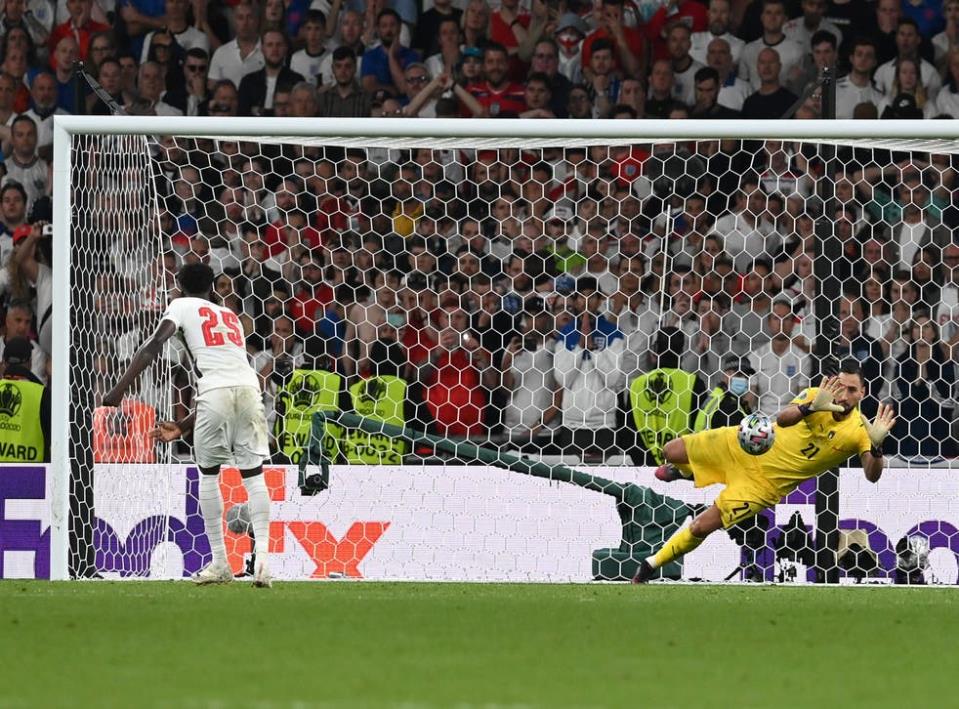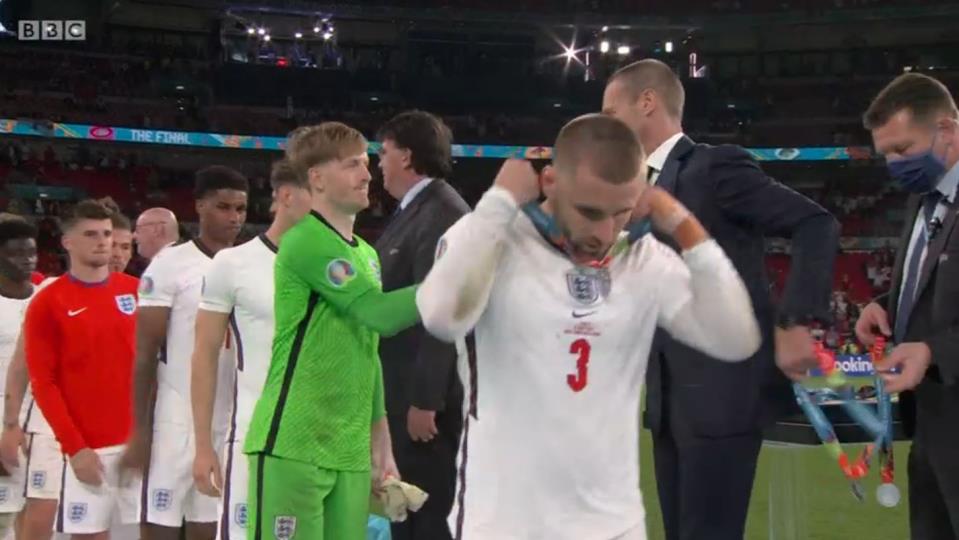It was a night to remember.
For the winners, and the losers too.
The Italians will remember it as the night when they won their second European championship, 53 years after their first.
The English will remember it as the night when their dreams of winning a major trophy were shattered, 55 years after securing their only international title.
It was a sweeter night for Italy as the triumph arrived three years after they missed the World Cup finals in Russia in 2018, in what was the country’s lowest point in football in more than half a century.
It was a bitter night for England as they had everything in their favour, including playing at Wembley Stadium before a crowd of supporters made up of 60,000 fans for the Three Lions as against just 6,000 for the Azzurri.
It was a divine night for all the Maltese who support the Italian national team. It was the first time Italy and England met in a final, and the “Italian” supporters have earned bragging rights until the two nations meet again.
It was a horrible night for all the Maltese who back the English national team. They know they have to live with the fact that they are at the mercy of the “Italians”, and they already got a taste of what this means on the social media, in bars, offices and elsewhere.
The cup did not “come home”, as the English have been saying it would for 25 years, since they hosted the competition in 1996.
Instead, it went to Rome.
History
This “coming home” issue has been haunting the English for so long now.
And, even here, the Italians are disputing the notion that football originated in England.
The modern football era may have started in the late 19th century in England, they argue, and the FA Cup is deemed to be the oldest football competition in the world, having been held for the first time in 1871.
But football, albeit with different rules and variations, is 2,000 years old according to historians, and is believed to have been played in ancient China, Greece, Japan and also Rome, which is why Italian journalists over the past days have insisted that the Cup did go home after all, but home means “Rome”, for them.
There were also arguments made on Italian TV that the precursor of modern day football, as the English introduced it in the 1800s, originated in Florence in the last years of the 15th century. A game of “calcio fiorentino” (Florentine football) is recorded to have been played in 1490, two years before America was discovered.
In the week the Italians reached a climax of national pride, they will claim inventing the wheel too. But they have made their point.

The game
England and Italy reached the final as the best two teams of the tournament. England had conceded just one goal in the previous six matches, and it came from a freekick. Italy had played some sparkling football, especially in the group stage.
That Luke Shaw goal early in the game hit the Italians hard, and from then onwards England played the type of game Italy are famous for – a tough defence, 10 men behind the ball, and swift counter-attacks to try to surprise Italy again. England tried to beat Italy by adopting the “catenaccio” style so dear to the Azzurri for decades.
But after a bland first half, Italy regrouped during the interval and started to play better football. Their efforts were rewarded when Leonardo Bonucci slotted home the draw from close range.
Extra-time produced no more goals, and the final had to be decided in a penalty shoot-out. The Italians missed first, and England took the lead by the second penalty. But from then onwards the English players failed to score any of the last three 11-metre shots while Italy missed just one more time.
Southgate had introduced two of his last three penalty-takers in the last minute of extra-time. It was clear that the substitutions were made with penalties in mind. But it backfired; they both missed; maybe they should have been given more time on the field of play.
For Italy, what was surprising was Jorginho’s miss, given that he is normally the penalty-taker for his side and had been so cool to give Italy victory against Spain in another shoot-out in the semi-final. Jorginho’s mistake prolonged the agony to another penalty, with Donnarumma saving off Saka to seal the issue for the Azzurri.
It was time to celebrate for Italy.

Some considerations
It was sad to note booing by the English fans when the Italian national anthem was being played before the game started. The jeering continued for most of the match, especially when England took the lead after a couple of minutes. It is very unlike the British to act this way; it goes to prove that there was too much at stake and they resorted to all tricks to unsettle the Italians. Instead, this behaviour galvanised them.
It was just as sad to see Italian fans being kicked and punched before and after the final, with actions that brought back memories of hooliganism. If the British authorities believe that they have eradicated the problem, they should do some serious re-thinking after what happened.
English authorities are famous for their organisational skills and discipline. And so it did come a surprise that fans without tickets broke through security barriers and turnstiles to get into Wembley Stadium. The English FA is facing disciplinary proceedings for this kind of misbehaviour.
That, then, many English players removed the silver medal as soon as they received it was a sure sign of unsporting behaviour. Taking it off before even walking down the podium goes against the spirit of fair play which has for long been advocated by the football authorities. One understands the disappointment of losing a final, but it should never supersede respect towards the opponents and towards the game itself.
The English team was not gracious in defeat. The Italian media described them as “bad losers”, saying that they should have taken a leaf out of Matteo Berrettini’s book – a few hours earlier the Italian tennis star had succumbed to a defeat in the Wimbledon final against Novak Djokovic, and his conduct in defeat was impeccable.
For several months, during domestic competitions in England players have taken the knee before each game to raise awareness against racism. Other nations have followed suit, and there was even some controversy earlier on during the Euro 2020 campaign when, in one of their games, only half of the Italian players took the knee.
This campaign does not seem to have worked. As soon as the final ended, the three English players who missed their penalty became the target of hate speech and racism attacks on the social media – all this because they are black.
Investigations were opened by the British police after “unacceptable, offensive and racist” abuse of Marcus Rashford, Jadon Sancho and Bukayo Saka. It is hoped that the perpetrators will be brought to book.

And since humanity is not all bad, a mural dedicated to Rashford in his hometown Manchester has become an anti-racism symbol as children rose to his defence, filling spaces on the wall with messages of support, encouragement and consolation. At least, there’s hope.
England coach Southgate had missed the crucial penalty in the Euro 1996 semi-final. A penalty shoot-out was again his undoing 25 years later and, although he was not in the list of penalty-takers this time, his choice of the five players was not the best he could make.
For Mancini, on the other hand, it was sweet revenge as he had been part of the Italy team that was knocked out by Argentina in the 1990 World Cup. Mancini had remained on the bench in that game, but he did recall his disappointment in the way Italy had lost. He made up for it last Sunday.
Italy also broke the jinx. No other team had ever emerged victorious in two successive penalty shoot-outs in the Euro tournament. The Azzurri made it with two wins in a row against Spain in the semi-finals and England in the final both thanks to a few saves by their star keeper Donnarumma.
Speaking of Donnarumma, AC Milan fans have known since his debut at 16 years of age that he was a one-of-a-kind goalkeeper. But it seems that the Italian media, and many others, discovered his extraordinary ability as from 1 July, the day when his contract with the Italian club expired and his new one with Paris St Germain started. Go figure!

Covid-19
Italy and England were the hardest hit by Covid-19 pandemic in Europe.
The two countries have been struggling to contain the spread of the virus. They have introduced restrictions, eased them, brought them back in and so forth.
Frankly speaking, the scenes that we all witnessed in both London and Rome are of concern. To see thousands of people so close to each other, very few wearing masks and even fewer wearing them correctly, could result in a spike in the number of cases in both countries.
It is understandable that there was jubilation in many Italian cities, in particular the capital. But, even here, it must be said that there was chaos in most areas, with little discipline exercised.
Closer to home, the final was of particular interest in Malta because of the traditional rivalry between football fans who support England and those who support Italy.
And, even here, there is some apprehension given that the final coincided with a recent increase in the number of Covid-19 cases. With the “Italian” fans celebrating in the streets – and, again, many flouting the pandemic restrictions – let us hope that we will not face the consequences of the behaviour we witnessed last Sunday night.